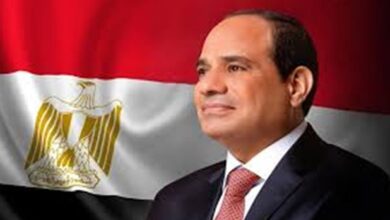In a sign of hope for improved relations between the police and human rights watchdogs, newly appointed Minister of Interior Mansour al-Essawy met with a leading Egyptian human rights activist on Monday to discuss developments in the nation's security organizations.
Bahey al-Din Hassan, the director of the Cairo Institute for Human Rights Studies (CIHRS), said that he met with al-Essawy on Monday for an hour-long meeting at the minister’s office.
Deputy Minister Ibrahim Hamad was also present during the meeting, which was described by Hassan as “very positive.”
"The minister was clear and sincere in his criticisms for the approach of former minister [Habib al-Adly],” Hassan told Al-Masry Al-Youm.
Egypt’s once-powerful and feared interior minister, al-Adly is currently on trial for brutally crushing the peaceful protests in Egypt that started on 25 January and lead to the ouster of former President Hosni Mubarak.
Moreover, international and local human rights watchdogs have traditionally condemned al-Adly, who served as minister for 14 years, and the State Security Investigations Service (SSIS), for using torture against political opponents in a systematic manner.
Earlier this month, protesters stormed many offices of the SSIS, calling for its dissolution.
During the meeting, Hassan suggested to al-Essawy that the ministry conduct an internal investigation into abuses alongside criminal investigations that are already taking place.
“I also proposed the establishment of permanent institutional channels for dialogue between human rights organizations and the minister’s office, as well as horizontal communication channels with district security offices in the provinces and police stations that do not involve the minister’s office,” added the CIHRS director.
A human rights activist meeting with the minister of interior is a rare sight in Egypt. However, Hassan said that al-Essawy is not the first minister of the interior he has met.
“In the early nineties, when I was the secretary general of the Egyptian Organization of Human Rights (EOHR), I had the chance to meet ex-Minster of Interior Abdel Halim Moussa, but the cooperation between EOHR and the ministry wasn’t successful at all,” recalled Hassan.
Moussa came to the ministry in 1990, following the notorious Zaki Bader. He advocated a conciliatory approach toward Islamic insurgents, which experts say was the move that lead to his dismissal from the ministry.
Hassan said that he would soon present a memo to the minister containing CIHRS proposals for security reform and ideas on the institution’s relationship with human rights groups.




